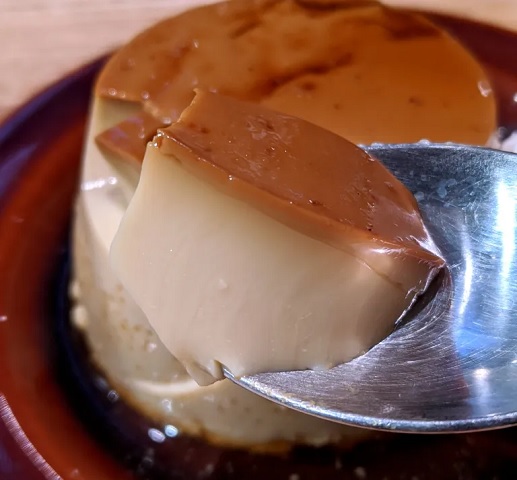
From how often we talk about food and hot springs here on RocketNews24, you’ve probably surmised that, as a nation, Japan is pretty into bathing and dining. Those passions aren’t exclusive to law-abiding members of Japanese society, either, as a recent survey of inmate complaints at prisons in Japan found several focused on meals and baths, with requests for better curry and longer soaks in the tub.
Japan’s Penal Institution Visiting Committee recently released its latest report based on observations and feedback from inmates at correctional facilities across the nation, with the data having been collected in 2014.
In many ways, Japan is a foodie’s paradise, with a rich culinary culture that makes it easy to find great meals even in remote, rural locations or budget-priced casual restaurants. But those same high standards for flavor and ambiance aren’t necessarily present inside the nation’s jailhouse dining halls. Some inmates grumbled about their food not being warm enough during the winter months, and one older convict was unhappy having to peel his own oranges, which he says is a challenge for incarcerated seniors.
A more specific complaint came from one of the wards of Fukui Prison, who told the Visiting Committee:
“The curry is watery. I want them to care enough to add some starch, so it won’t be so runny.”
Sparingly enough, the Ministry of Justice’s Bureau of Corrections was receptive to his request, and has since started looking into adding starch to its curry to produce a more substantial texture. Still, an executive spokesperson for the Bureau insisted that there was nothing necessarily wrong with the prior method of making the dish. “All food is tasted by the cooking staff before being served to inmates, and I’ve sampled the curry as well. Compared to what would be served in an ordinary cafeteria, it isn’t bad. As for the proper texture, a lot of that depends on the individual preferences of the person eating it.”
Meanwhile, at Obihiro Prison, the problem for one convict wasn’t the food itself, but rather how he had to eat it.
“When they serve pudding or yogurt, I want a spoon. [Without one] I have to stir it up with my chopsticks, then put my mouth on the cup and drink it.”
Our more inventive readers may have already spotted the problem, though, in that the difference between a plastic or metal spoon and a plastic or metal shiv is just a bit of frame-snapping force applied at the right angle. But once again, the wardens were receptive to this desire, and as of the end of last December, Obihiro Prison has authorized the supply of spoons made of paper so that inmates can enjoy their prison pudding in the same civilized manner as people on the outside.
▼ Although honestly, “prison pudding” sounds like it should be referring to something much more disgusting than having to eat your desserts in an unorthodox style.
If mealtime is one of the few things prisoners have to look forward to, bath time is surely another. At Fuchu Prison, even those without a clean rap sheet expressed a desire for more frequent or longer chances to wash up, as shown by these two inmate requests.
“I want bath time extended from 15 to 30 minutes.”
“I want to be given the opportunity to bathe more than two or three times a week.”
Currently, the Ministry of Justice stipulates that inmates must be allowed to bathe at least twice a week, but anything beyond that seems to be at the discretion of the individual institutions. Prisons that are reluctant to grant requests for expanded bathing privileges cite the limited capacity of their current bath facilities. Expanding them would require more space, new construction, and also a greater number of guards to keep watch on a larger number of bathers spread across a larger area, all of which would necessitate increased budgets.
Nevertheless, some prisoners’ rights advocates argue that investing in such improvements would be justifiable on the grounds that the kinder treatment of inmates would aid in their rehabilitation and help produce a desire to contribute to lawful society upon their release. Whether such an argument will be persuasive in the law-abiding, order-craving environment of Japanese society at large, though, is yet to be seen.
Source: Yahoo! News Japan via Otakumu
Top image: Wikipedia/Taisyo
Insert image: RocketNews24


 Nintendo DS on the menu as Japanese prisons get creative to keep ageing prisoners’ brains active
Nintendo DS on the menu as Japanese prisons get creative to keep ageing prisoners’ brains active Japanese prison mascot appears in children’s colouring book made by prison inmates
Japanese prison mascot appears in children’s colouring book made by prison inmates Akihabara pop-up shop sells goods made by Japanese prison inmates
Akihabara pop-up shop sells goods made by Japanese prison inmates We spend Culture Day in prison, food was arguably better than Yoshinoya
We spend Culture Day in prison, food was arguably better than Yoshinoya Japanese prison offers manga background work program, artwork offered online【Pics】
Japanese prison offers manga background work program, artwork offered online【Pics】 How to order snacks on a Shinkansen bullet train in Japan
How to order snacks on a Shinkansen bullet train in Japan Japan’s new difficult-to-drink-from beer glass protects your liver, but it’s a brutal experience
Japan’s new difficult-to-drink-from beer glass protects your liver, but it’s a brutal experience Demon Slayer: Kimetsu no Yaiba gets new roller coaster attractions and food at Universal Studios Japan
Demon Slayer: Kimetsu no Yaiba gets new roller coaster attractions and food at Universal Studios Japan Burger King Japan suddenly adds Dr. Pepper and Dr. Pepper floats to its menu nationwide
Burger King Japan suddenly adds Dr. Pepper and Dr. Pepper floats to its menu nationwide New Pokémon ice cream, dessert drinks, and cool merch coming to Baskin-Robbins Japan【Pics】
New Pokémon ice cream, dessert drinks, and cool merch coming to Baskin-Robbins Japan【Pics】 New Nintendo Lego kit is a beautiful piece of moving pixel art of Mario and Yoshi【Photos】
New Nintendo Lego kit is a beautiful piece of moving pixel art of Mario and Yoshi【Photos】 New samurai glasses are Japan’s latest weird must-have souvenir
New samurai glasses are Japan’s latest weird must-have souvenir Kyoto Tower mascot termination reveals dark side behind cute Japanese characters
Kyoto Tower mascot termination reveals dark side behind cute Japanese characters Hello, cosmetics! Clinique teams up with Hello Kitty this summer for first-time collaboration
Hello, cosmetics! Clinique teams up with Hello Kitty this summer for first-time collaboration This Nara workshop has been making deer crackers for more than 100 years and offers tours【Photos】
This Nara workshop has been making deer crackers for more than 100 years and offers tours【Photos】 Nintendo history you can feel – Super NES, N64, and GameCube controllers become capsule toys
Nintendo history you can feel – Super NES, N64, and GameCube controllers become capsule toys “The most Delicious Cup Noodle in history” – Japan’s French Cup Noodle wins our heart【Taste test】
“The most Delicious Cup Noodle in history” – Japan’s French Cup Noodle wins our heart【Taste test】 Starbucks releases a cute Frappuccino and Unicorn Cake…but not in Japan
Starbucks releases a cute Frappuccino and Unicorn Cake…but not in Japan McDonald’s Japan’s Soft Twist Tower: A phantom ice cream only sold at select branches
McDonald’s Japan’s Soft Twist Tower: A phantom ice cream only sold at select branches Yabai Ramen: What makes this Japanese ramen so dangerous?
Yabai Ramen: What makes this Japanese ramen so dangerous? Finally! Nintendo Japan expands Switch 8-bit controller sales to everybody, Online member or not
Finally! Nintendo Japan expands Switch 8-bit controller sales to everybody, Online member or not Japanese government wants to build luxury resorts in all national parks for foreign tourists
Japanese government wants to build luxury resorts in all national parks for foreign tourists To combat declining birth rate, Japan to begin offering “Breeding Visas” to foreigners
To combat declining birth rate, Japan to begin offering “Breeding Visas” to foreigners 10 things you should buy at 7-Eleven in Japan
10 things you should buy at 7-Eleven in Japan Studio Ghibli releases anime heroine cosplay dresses that are super comfy to wear
Studio Ghibli releases anime heroine cosplay dresses that are super comfy to wear Woman charged for driving suitcase without a license in Osaka
Woman charged for driving suitcase without a license in Osaka Studio Ghibli unveils My Neighbour Totoro miniature house model
Studio Ghibli unveils My Neighbour Totoro miniature house model Kyoto experiencing problems with foreign tourists not paying for bus fares, but not on purpose
Kyoto experiencing problems with foreign tourists not paying for bus fares, but not on purpose Fighting mild hunger with a Japanese soda that turns into jelly in the stomach【Taste test】
Fighting mild hunger with a Japanese soda that turns into jelly in the stomach【Taste test】 Studio Ghibli’s Howl’s Moving Castle tapestry unveiled in Japan for first time
Studio Ghibli’s Howl’s Moving Castle tapestry unveiled in Japan for first time McDonald’s new Happy Meals offer up cute and practical Sanrio lifestyle goods
McDonald’s new Happy Meals offer up cute and practical Sanrio lifestyle goods Sales of Japan’s most convenient train ticket/shopping payment cards suspended indefinitely
Sales of Japan’s most convenient train ticket/shopping payment cards suspended indefinitely Sold-out Studio Ghibli desktop humidifiers are back so Totoro can help you through the dry season
Sold-out Studio Ghibli desktop humidifiers are back so Totoro can help you through the dry season Japanese government to make first change to romanization spelling rules since the 1950s
Japanese government to make first change to romanization spelling rules since the 1950s Foreigner’s request for help in Tokyo makes us sad for the state of society
Foreigner’s request for help in Tokyo makes us sad for the state of society Ghibli founders Toshio Suzuki and Hayao Miyazaki contribute to Japanese whisky Totoro label design
Ghibli founders Toshio Suzuki and Hayao Miyazaki contribute to Japanese whisky Totoro label design Doraemon found buried at sea as scene from 1993 anime becomes real life【Photos】
Doraemon found buried at sea as scene from 1993 anime becomes real life【Photos】 Tokyo’s most famous Starbucks is closed
Tokyo’s most famous Starbucks is closed Princesses, fruits, and blacksmiths: Study reveals the 30 most unusual family names in Japan
Princesses, fruits, and blacksmiths: Study reveals the 30 most unusual family names in Japan Bathing with Pokémon? Healing species’ powers tapped for Pokémon Recovery public baths in Japan
Bathing with Pokémon? Healing species’ powers tapped for Pokémon Recovery public baths in Japan We fall in love with a bucket of Japanese custard pudding【Taste test】
We fall in love with a bucket of Japanese custard pudding【Taste test】 We try Taiwan’s newest taste sensation: Pudding Ramen!
We try Taiwan’s newest taste sensation: Pudding Ramen! Amazon Japan adds regulations for deliveries to prisons, the internet wonders why
Amazon Japan adds regulations for deliveries to prisons, the internet wonders why Osaka man imprisoned on rape conviction released in exceptional reversal of charges
Osaka man imprisoned on rape conviction released in exceptional reversal of charges Ex-plant worker jailed for 42 months for tainting frozen food
Ex-plant worker jailed for 42 months for tainting frozen food Starbucks Japan’s new banana chocolate pudding is so good we can’t keep our language clean
Starbucks Japan’s new banana chocolate pudding is so good we can’t keep our language clean U.K. man sentenced for prohibited images of ‘manga’ children
U.K. man sentenced for prohibited images of ‘manga’ children What’s the best spoon for Japanese curry?【Photos】
What’s the best spoon for Japanese curry?【Photos】 Japanese company proposes Marie Kondo as mascot for new “Spark Joy” police taser weapons
Japanese company proposes Marie Kondo as mascot for new “Spark Joy” police taser weapons We stumbled upon “Pudding Street” in Hanoi, so of course we had to investigate
We stumbled upon “Pudding Street” in Hanoi, so of course we had to investigate Family Mart convenience stores add “See-Through Pudding?” to their summer lineup【Taste test】
Family Mart convenience stores add “See-Through Pudding?” to their summer lineup【Taste test】 We sample blue Drift Ice Curry from the India of the Okhotsk Sea
We sample blue Drift Ice Curry from the India of the Okhotsk Sea We try the new Japanese trauma curries in Japan
We try the new Japanese trauma curries in Japan We taste test Baby Star Ramen on Ice Cream: 10 points apiece for crunchiness, creaminess
We taste test Baby Star Ramen on Ice Cream: 10 points apiece for crunchiness, creaminess
Leave a Reply